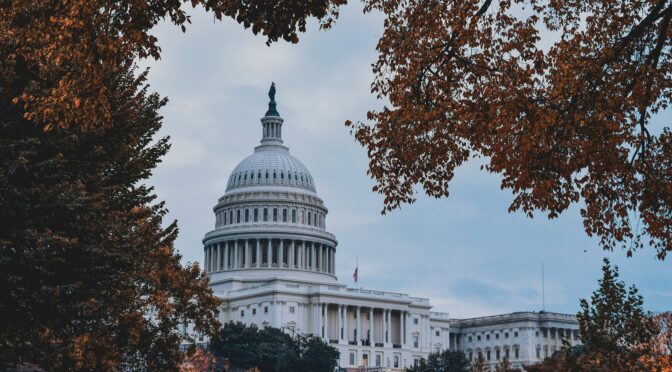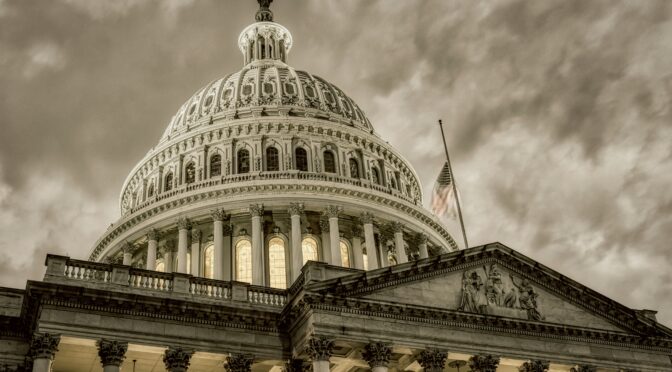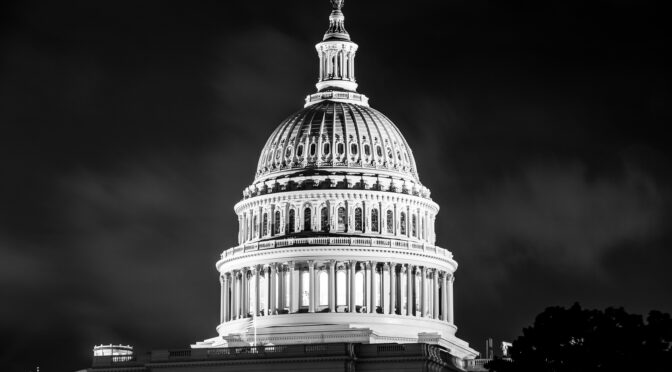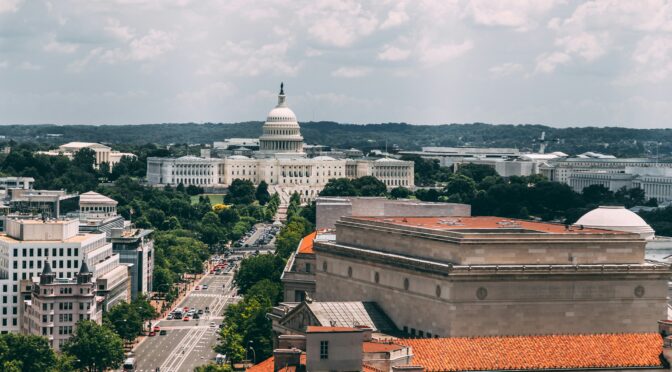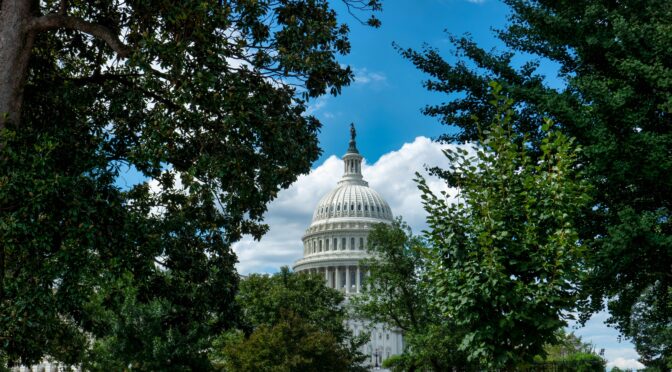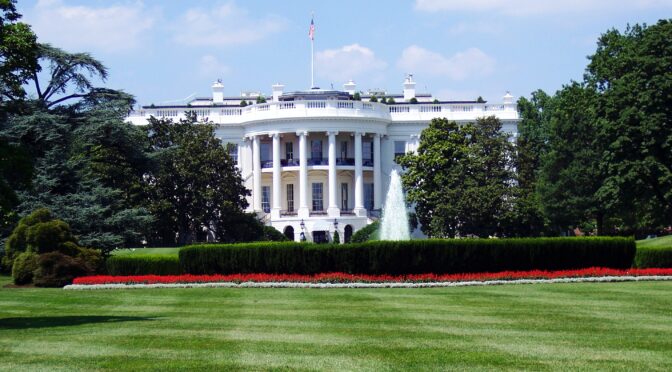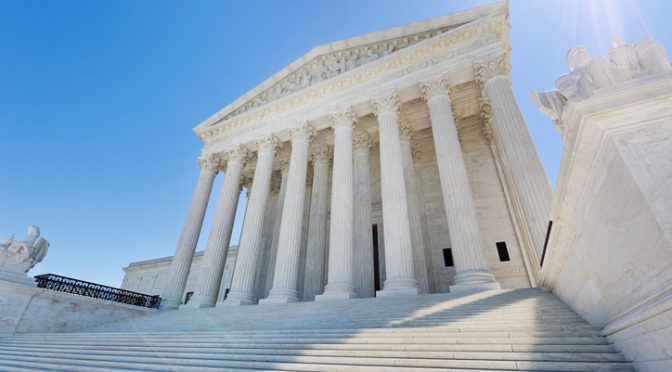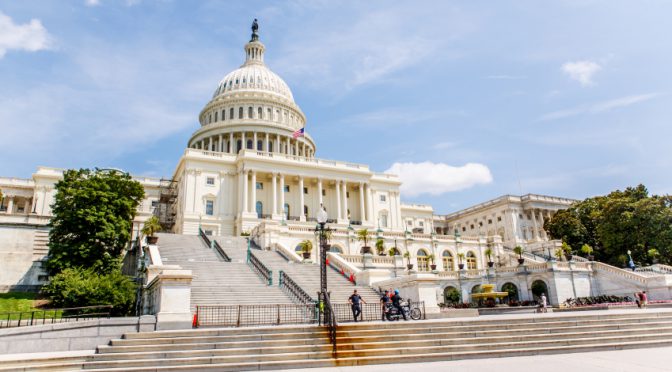By Sean Robins, NACAC’s director of advocacy
Welcome to the newest issue of the Advocacy Update on NACAC’s Admitted blog. This week, the landscape of higher education policy continues to shift rapidly, with significant developments affecting students, institutions, and educators alike. From legal challenges to federal policies that threaten access and equity, to new proposals shaping data reporting, student visas, and academic freedom, the issues are both complex and consequential. NACAC is actively monitoring these developments, elevating member concerns, and advocating for policies that protect opportunities for all students while supporting the integrity and autonomy of colleges and universities. Our work underscores the critical importance of staying engaged, informed, and proactive in shaping the education system and pathways that serves all learners.
Policy & Legislative Updates
The Council for Opportunity in Education (COE) has filed two lawsuits against the U.S. Department of Education over the denial and discontinuation of more than 100 TRIO grants — one of the largest disruptions in the program’s history. COE contends that the department retroactively applied new anti-DEI policies without following required rulemaking processes, cutting off vital services for roughly 40,000 low-income, first-generation students, veterans, and adult learners. Representing colleges and agencies that operate TRIO programs, COE says the litigation aims to restore due process and preserve educational opportunity for students nationwide.
The controversy surrounding the Education Department has continued to grow amid reports that furloughed employees’ out-of-office email messages were replaced with partisan language blaming Democrats for the government shutdown. Career staff have raised Hatch Act concerns, arguing the edits may amount to coerced political speech. The Hatch Act is a 1939 law designed to keep federal programs nonpartisan and protect civil servants from political coercion. Under the Act, nearly all executive branch employees, including those on furlough, are prohibited from engaging in political activity in their official capacity. The American Federation of Government Employees has since filed suit, alleging violations of federal employees’ First Amendment rights and deepening scrutiny of political interference within the agency. House Education Committee Ranking Member Bobby Scott is also calling for a hearing, arguing the move is an “apparent violation of the Hatch Act” and other federal laws, calling it “incredibly egregious.”
Meanwhile, the shutdown itself shows no sign of resolution. After the Senate has failed to pass a measure to reopen the government, the White House warned that “reduction-in-force” notices could soon be issued across federal agencies — an unprecedented step during a funding lapse. The administration has also deleted references to the 2019 Government Employee Fair Treatment Act, raising fears that furloughed employees may be denied backpay. The prolonged stalemate has left hundreds of thousands of federal workers in limbo and further strained agencies responsible for administering student aid and civil rights enforcement.
Amid these disruptions, the Senate confirmed Kimberly Richey to lead the Education Department’s Office for Civil Rights in a narrow 51–47 vote along party lines. Richey inherits an office facing a backlog of more than 12,000 cases and operating with half its former workforce. Her confirmation raises questions about whether OCR will have the capacity and support needed to meet its mandate during the shutdown and beyond.
In other developments, higher education groups are closely watching several key policy and legal battles. A federal court upheld the Biden administration’s gainful employment rule, rejecting a challenge from for-profit colleges. The decision reinforces the effort to hold career programs accountable for student outcomes and ensure graduates can repay their loans and earn more than high school graduates. At the same time, the department has resumed loan forgiveness under the Income-Based Repayment plan for long-term borrowers, following months of delay and legal pressure.
The Trump administration is exploring the sale of portions of the federal government’s $1.6 trillion student loan portfolio to private investors — a move that could upend borrower protections and reshape the federal role in student lending. Critics warn that such a sale could harm borrowers and shortchange taxpayers, while supporters frame it as a step toward reducing federal liabilities and administrative costs.
International education also remains in the spotlight, as the Department of Homeland Security faces widespread opposition to its proposal limiting foreign student visas to four years. Colleges, faculty, and industry leaders argue that the change would disrupt degree completion, deter global talent, and impose unnecessary administrative burdens.
A growing flashpoint for higher education institutions is the Trump administration’s proposed “Compact for Academic Excellence,” which has drawn strong condemnation across the sector for what many view as an unprecedented intrusion into institutional governance and academic freedom. The compact would condition access to federal funding — including student aid and research grants — on compliance with a set of ideological directives related to curriculum, speech, and campus policy. Among its provisions are requirements to align institutional policies with the administration’s redefinition of sex and gender, limits on international student enrollment, and mandates for standardized testing in admission.
The Association of American Colleges & Universities, the American Council on Education, and dozens of other higher education organizations have denounced the proposal as coercive, politically motivated, and fundamentally at odds with the long-standing principle of institutional independence. Faculty groups warn that it would open the door for the federal government to dictate academic content and personnel decisions, eroding the core values of inquiry and free expression that underpin higher education. Institutions from across the ideological spectrum have signaled they will not sign the compact, calling it a “test of allegiance” that would compromise academic integrity in exchange for funding. The move has united many in higher education around a shared message: that federal support must not be used as leverage to enforce political conformity or suppress diversity of thought. With the October 20 feedback deadline approaching, colleges are preparing formal responses and considering potential legal challenges to safeguard their autonomy.
In the broader economic context, colleges and universities continue to face financial pressure. September saw another round of job cuts and program reductions across campuses nationwide, including at well-endowed institutions such as Washington University in St. Louis, Brown, and Yale. Leaders cite declining enrollment, rising operational costs, and uncertainty around federal funding as key drivers.
New data from Inside Higher Ed’s Student Voice survey underscores how many students face financial uncertainty. The responses show that fewer than one in three students fully understand their total cost of attendance, and many say even a modest unexpected expense could derail their enrollment. The findings point to a need for clearer cost transparency, better access to emergency aid, and stronger institutional support to promote student persistence.
In a constructive development for advocacy efforts, the American Council on Education has launched a new interactive tool highlighting the economic impact of higher education across states and congressional districts. The platform visualizes how colleges drive workforce development, innovation, and local prosperity — information that can bolster advocacy efforts by illustrating the essential role of higher education in national and regional economies.
States continue to advance their own efforts to expand college access. Connecticut recently launched the Connecticut Automatic Admission Program, which guarantees admission for eligible students with strong GPAs to 10 participating public and private colleges. By removing application fees, essays, and recommendation requirements, the initiative aims to simplify the admission process and increase college participation among the state’s high school graduates.
NACAC Advocacy
This week, NACAC raised significant concerns regarding the U.S. Department of Education’s proposed Admissions and Consumer Transparency Supplement (ACTS) revision to the Integrated Postsecondary Education Data System (IPEDS). In formal comments submitted to the department — developed with input from NACAC members — NACAC emphasized that while the association supports greater transparency in college admission, the proposal’s scope and pace would place an unreasonable reporting burden on institutions and risk misrepresenting the admission process.
The proposed rule would require colleges to report detailed applicant-level data, including race, GPA, and test scores over multiple years, within a compressed timeline. NACAC cautioned that many institutions lack the capacity to collect such granular data retroactively and warned that publishing this information without context could distort public understanding of admission practices, particularly at institutions serving diverse or under resourced populations.
In addition to its individual comments, NACAC joined the American Council on Education and other higher education associations in a coalition letter urging the department to delay implementation and engage stakeholders in a more deliberate review process. The letter highlights the potential for confusion, privacy risks, and data misuse under the proposed requirements, which would add more than 100 new data elements and mandate five years of retroactive reporting. Together, the associations called on the department to prioritize accuracy, fairness, and meaningful transparency that supports students and institutions alike.
Ways You Can Take Action
We are continuously updating our Take Action page with opportunities to make your voice heard. If you have not already, I encourage you to advocate on the urgent issues below. You can also view all active advocacy campaigns in the yellow column of the Take Action page.
- Tell Congress: Save TRIO and Support College Access
- Tell Congress: Prioritize Visa Appointments for International Students and Scholars
- Urge Congress to Protect Postsecondary Pathways
- Tell Congress: International Students are Essential to America’s Safety, Economy, and Global Strength
- Tell Congress to Not Abandon Our National Commitment to Education
- Urge Congress to Protect Disabled Students
- Don’t Flunk the Future Advocacy Toolkit
As NACAC members, your voice, expertise, and commitment are central to protecting access, equity, and opportunity in education. In the face of policy challenges, legal battles, and uncertainty, coming together as a community allows us to amplify our impact and advocate effectively for students and institutions alike. As Margaret Mead once said, “Never doubt that a small group of thoughtful, committed citizens can change the world; indeed, it’s the only thing that ever has.”
Your engagement, whether through advocacy, coalition-building, or sharing your experiences, ensures that our collective efforts continue to make a difference for students across the nation.




